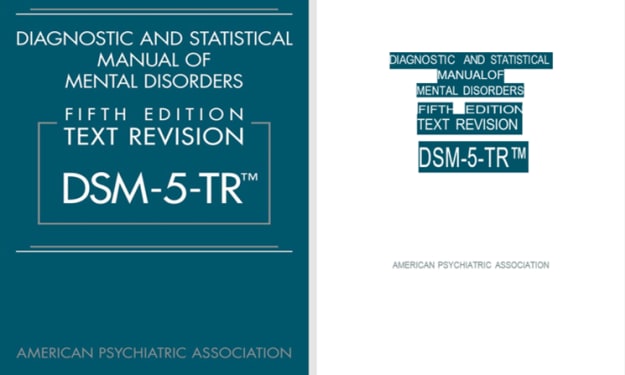Trusted Sources: What Makes a News Channel Reliable?
Navigating the Media Landscape to Find Trustworthy News Sources

In a world overflowing with information, finding a reliable news source is more critical than ever. With countless channels and platforms vying for our attention, how can we determine which ones to trust? Here, we'll explore the key elements that makes top news channels reliable and help you navigate the sea of information with confidence.
Credibility and Trustworthiness
The foundation of any reliable news channel is its credibility. A credible news outlet provides accurate, well-researched, and unbiased information. Look for channels that have a history of reliability and have built a reputation for integrity over time. Renowned news organizations like the BBC, Reuters, and The New York Times have established themselves as trustworthy sources through consistent, high-quality journalism.
Transparency and Accountability
Transparency is a hallmark of a reliable news channel. This means being open about their sources, methods of information gathering, and any potential conflicts of interest. Reliable news channels also hold themselves accountable for their mistakes. When errors occur, they promptly issue corrections and apologies, maintaining their commitment to delivering the truth.
Fact-Checking and Verification
In the age of misinformation, fact-checking is crucial. Reliable news channels rigorously verify their information before broadcasting or publishing it. They employ teams of fact-checkers who cross-reference details with multiple sources, ensuring the accuracy of their reports. News outlets that are part of fact-checking networks, like the International Fact-Checking Network (IFCN), often adhere to higher standards of verification.
Editorial Independence
Editorial independence is vital for a news channel's reliability. This means that the news outlet operates free from undue influence by government, corporations, or any other external entities. Independent news channels are more likely to present unbiased information and cover stories without fear of repercussions. Channels that prioritize journalistic integrity over commercial interests are generally more trustworthy.
Diversity of Perspectives
A reliable news channel provides a balanced view by presenting diverse perspectives on any given issue. This means not only covering multiple sides of a story but also featuring voices from different backgrounds, cultures, and political affiliations. By offering a variety of viewpoints, these channels help viewers form well-rounded opinions based on a comprehensive understanding of the topic.
Consistency and Professionalism
Consistency in reporting and professionalism are indicators of a reliable news channel. This includes adhering to journalistic standards, maintaining a professional demeanor, and consistently delivering high-quality content. Reliable news channels often have seasoned journalists with extensive experience and expertise in their fields, adding to the credibility of their reports.
Use of Reliable Sources
The reliability of a news channel also depends on the sources they use. Credible news outlets rely on authoritative and reputable sources for their information. This includes primary sources, official documents, and expert opinions. Channels that frequently cite dubious or anonymous sources should be approached with caution.
How to Spot Reliable News Channels
Now that we've outlined the key characteristics of reliable news channels, here are some practical tips to help you identify them:
1. Check the Source: Start by verifying the reputation of the news channel. Established channels with a long history of reliable reporting are generally more trustworthy. Research the ownership and potential biases that might influence their reporting.
2. Examine the Reporting Style: Reliable news channels present information in a clear, factual, and unbiased manner. Sensational headlines and emotionally charged language can be red flags indicating that a channel is more interested in attracting viewers than providing accurate information.
3. Look for Supporting Evidence: Trustworthy news channels provide evidence to support their claims. They reference studies, statistics, expert opinions, and direct quotes from credible sources. Be wary of reports that lack concrete evidence or rely heavily on speculation.
4. Check Multiple Sources: Compare the information from multiple reliable news channels. Consistent reports across different reputable sources are more likely to be accurate. Discrepancies might indicate the need for further investigation or highlight bias in reporting.
5. Review the Correction Policy: A good news channel has a clear policy for correcting mistakes. Look for how they handle errors—whether they promptly issue corrections and how transparent they are about their mistakes.
6. Investigate the Journalists: Research the journalists and editors behind the news. Experienced and respected journalists with a track record of integrity are more likely to produce reliable reports. Awards, recognitions, and professional affiliations can also be indicators of credibility.
7. Analyze the Funding and Ownership: Understanding who funds and owns a news channel can reveal potential biases. Channels funded by diverse sources or non-profit organizations often have more editorial independence compared to those heavily reliant on advertising revenue or owned by entities with specific agendas.
Staying Informed in the Digital Age
In our digital era, the landscape of news consumption is rapidly evolving. Social media platforms, blogs, and independent news websites have become significant sources of information. While these platforms can provide valuable insights, they also pose unique challenges for verifying reliability. Here are some strategies for staying well-informed:
1. Diversify Your News Sources: Don’t rely on a single news channel for all your information. Follow multiple reputable news channels and cross-check their reports. This approach minimizes the risk of falling victim to bias or misinformation.
2. Use Fact-Checking Websites: Websites like Snopes, FactCheck.org, and PolitiFact specialize in verifying news stories and debunking misinformation. Refer to these sites when in doubt about the authenticity of a news report.
3. Engage with Reliable Social Media Accounts: Follow verified accounts of reputable news organizations and journalists on social media. Engage with their content to stay updated with reliable information in real-time.
4. Critical Thinking: Always approach news with a critical mind. Ask yourself who the source is, what their potential biases might be, and what evidence supports the story. This habit can help you distinguish between credible news and misinformation.
5. Educate Yourself on Media Literacy: Media literacy education can empower you to critically analyze and evaluate news sources. Many organizations offer resources and courses to enhance your media literacy skills.
Conclusion
In a world where information is abundant and easily accessible, discerning reliable news channels from unreliable ones is crucial for staying accurately informed. By understanding the key characteristics of trustworthy news sources and applying practical strategies to evaluate them, you can navigate the complex media landscape with confidence. Remember, being an informed citizen not only benefits you but also contributes to a well-informed society, which is essential for a thriving democracy. So, stay vigilant, question sources, and prioritize reliability in your news consumption habits.
About the Creator
Enjoyed the story? Support the Creator.
Subscribe for free to receive all their stories in your feed. You could also pledge your support or give them a one-off tip, letting them know you appreciate their work.





Comments
There are no comments for this story
Be the first to respond and start the conversation.